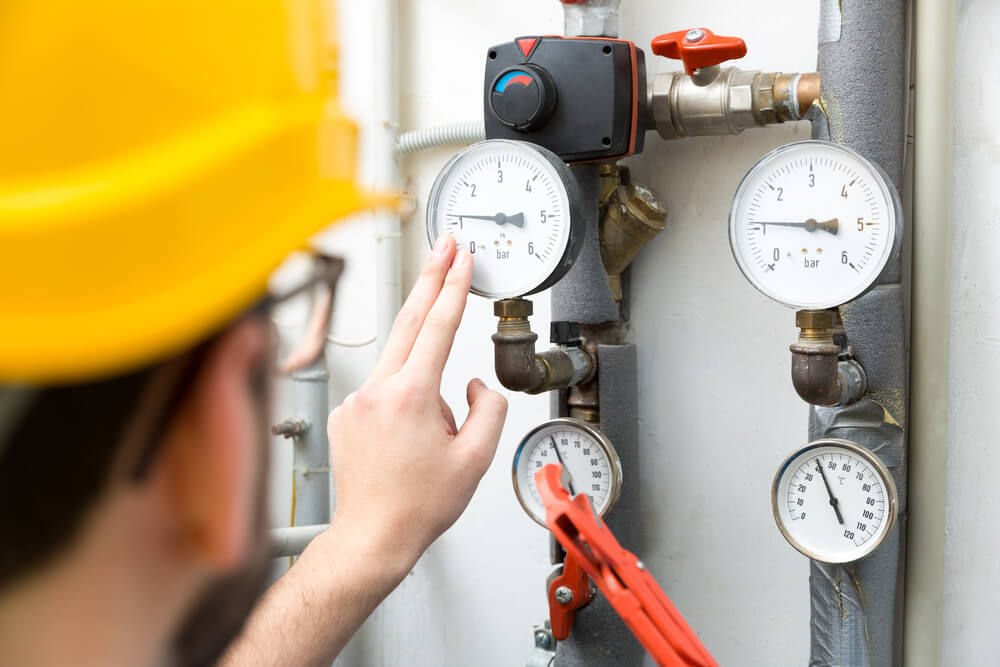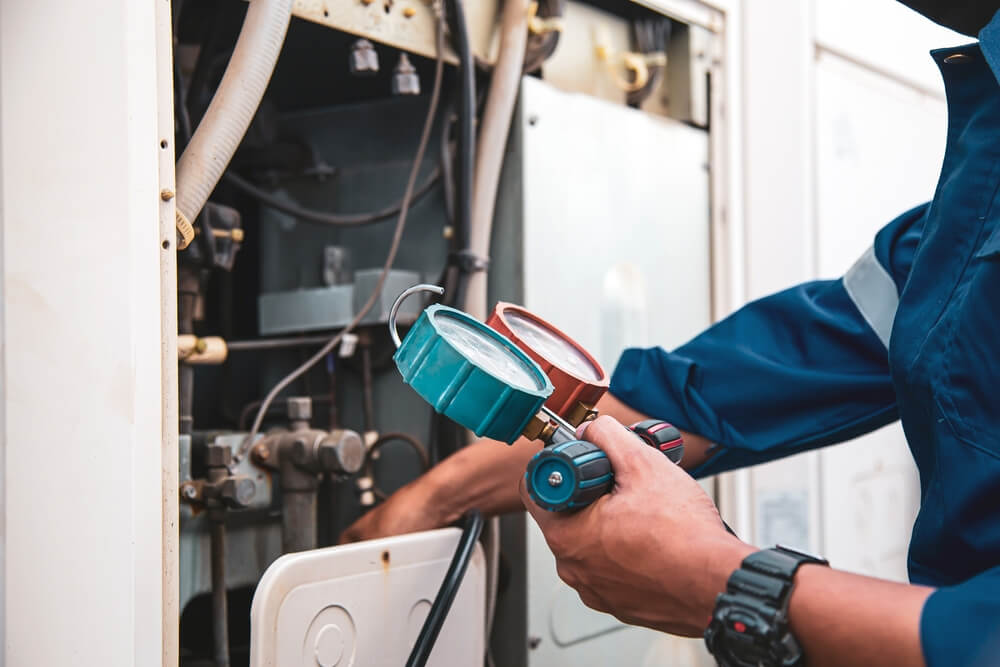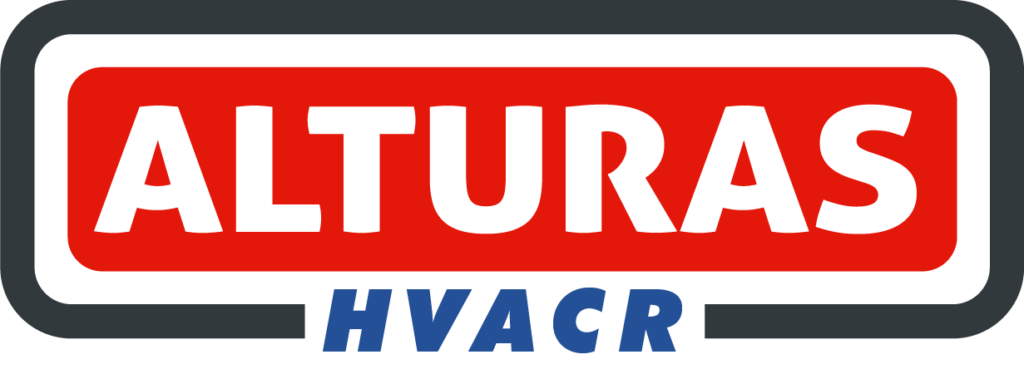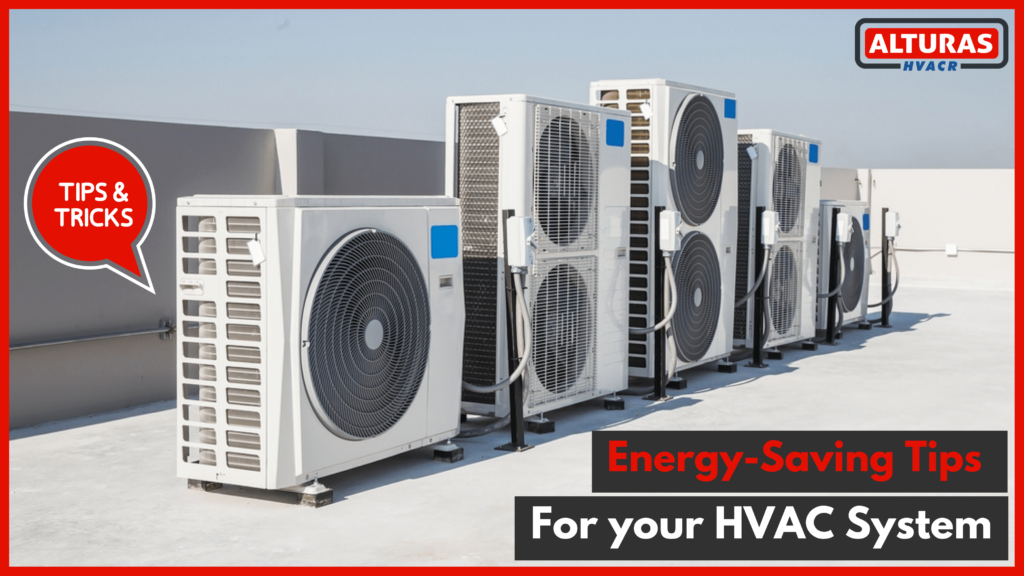A HVAC system is an essential part of a home or a building. It helps to control the environmental conditions within a building to create a comfortable space indoors regardless of the time of year and weather outside. However, one must be aware that energy efficiency in HVAC systems can have a huge impact on your energy savings and the life expectancy of the system.
If your energy bills have suddenly sky-rocketed and you’re wondering why. Then know that most of your energy bills come from HVAC system. Studies show at least 50% of a home’s energy consumption comes from the HVAC system. Therefore, you’ll want to have an energy-efficient HVAC unit as they require less energy to work.
How to reduce HVAC energy consumption?
Despite getting an energy-efficient unit, you also need to perform some HVAC energy management techniques that are inexpensive and will make your HVAC system more efficient and save you money. Use these six simple tips that explain how to reduce hvac energy consumption. These Energy saving tips for your HVAC system will also tell you how to improve your home’s heating and cooling efficiency without costing you an arm and a leg.
Conduct Regular Maintenance

Routine maintenance of your hvac system is the best way to ensure that your systems are running at their peak efficiency. It is best to identify the issue before the system breaks down. If HVAC equipment is not properly maintained, there is a high chance that the system might malfunction. If the problem is further ignored and left unchecked, then the appliance can collapse. This can result in huge losses. So it is important not to ignore any signs of malfunctioning in your system
Therefore, it is imperative to have HVAC maintenance on a regular basis. Have your HVAC technician conduct a full inspection twice a year.
Invest in a Whole New System
Like every other appliance, HVAC system also has a life limited expectancy. Alternatively, if you keep on relying on your twenty years old HVAC systems, to avoid replacing the old one, it will definitely cost you high energy bills. The hvac system might collapse one day.
Consider installing a whole new energy-efficient system with energy-efficient HVAC ducting before it’s too late. Check for units with high SEER ratings and energy Star-Rated models that adhere to strict energy efficiency guidelines.
Install Programmable Thermostats
Programmable thermostats can reduce a considerable amount of energy consumed by HVAC units. As most people forget to adjust their thermostats before leaving their homes or workplace, a programmable thermostat is an affordable tool.
These systems allow temperatures to be automated, so they can change depending on the time of day and weather conditions outside. Therefore, it takes some workload off the HVAC system itself. A change in temperature during the day when nobody is home can make a drastic difference on your electricity bill.
Invest in Higher Efficiency Equipment
If you are planning to replace the existing HVAC system or are selecting HVAC equipment for a new building, consider buying energy efficient HVAC systems for commercial buildings or residential areas. It may cost you more money at the time of purchase but it will save you a lot of money in the long run.
Choose higher SEER and EER for the air conditioning and higher AFAU furnaces. Increasing the SEER rating from 13 to 20 would save energy by 65% of the consumed energy by the air conditioner.
Retrofit when necessary
Even if your system is well-maintained systems, some of its parts need to be changed every now and then. A part exchange or retrofit can save you a great deal on your energy bills, and help your system run better.
Although parts like heat pumps and air conditioning compressors aren’t cheap, they are less expensive than new systems. An occasional retrofit is better than buying a whole new system. Likewise, changing air filters, Fan controls, and air-side economizers can also increase efficiency when properly installed.
Clean Your Air Filters
With the continuous use of HVAC system, the air filters collect dirt, dust, and other debris. The filters get clogged and resultantly, the system has to work harder than usual. This causes the utility bills to increase. Therefore, it is recommended to regularly clean or replace your air filters.
Related: Commercial HVAC Air Filters Guide
Keep the temperature optimum

Don’t set the heat too high or your AC too low. Keep the indoor temperature setting higher in summer at 75֯F (24C) and 70֯F (21C) during the cooler months. An HVAC system set at 75 degrees will use 18% more energy than one set at 78 degrees.
Improve the insulation
Better insulation in your area has a direct impact on your hvac system efficiency. The better your home or commercial area is insulated, the better your HVAC system will run. Insulation reduces the amount of warm or cool air that escapes from your house. You don’t want to heat the outdoors in the winter or send cold air out in the summer. Therefore, the unit will not have to work harder to heat and cool your home again and again.
Related: Importance of HVAC Insulation
Seal the Ducts
Leaky ductwork is one of the most common and costly issues that is often overlooked during HVAC maintenance. This can cost you a lot of money as leaky ductwork can lead to high energy consumption. Cracks and holes allow air to escape before it reached the inside of your home. This makes hvac system work harder than it is required.
Inspect your duct system and seal up any openings to prevent air leakage. By using a product like Aeroseal, any cracks and holes will easily be filled, preventing any more air leakage.
Check your Doors and Windows
Keep doors and windows shut when your HVAC system is running. Ensure there is no leak or spaces around doors and windows that can allow the air to escape. A sealed home is a great way to save energy. Whereas, If there is a leak, install weather stripping around doors and windows. If you are constructing a new home or renovating an existing one, consider using a higher R-value for outside doors and windows.
Cover the window with Curtains
Keep your curtains or blinds closed during the hot summer days to block out some of the summer heat, allowing your home to maintain a cooler temperature. Alternatively, opening the curtains during winter will allow even the smallest amount of sunlight to come through thereby naturally warming your home, so your HVAC system will need to work less.
Some of these solutions are simple DIY tasks, but others require a professional touch. If you need help getting more out of your HVAC system, contact Alturas Contractors.

